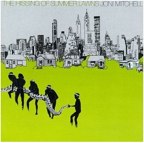It’s almost been five years since the Santa Monica Farmer’s Market tragedy, when an 86-year-old man accidentally took the lives of ten unsuspecting people with his burgundy Buick LeSabre. I was there, and documented the aftermath in real-time.
This morning, at around 2am, I received an anonymous comment on that entry from someone who survived. It’s a haunting glimpse into the experience of cheating death.
From: vancouverite
When it’s not your day to die, it’s just not your day to die.
I was there that day. Right there. My son was less than a year old at the time and it was a rarity that he and his father stayed home that day, they’d normally be rushing me along impatiently.
So I was dawdling, perusing the lovely organic greens and the beautiful melons, working my way up one side of the street stalls and back down the other.
I am only alive because at that moment, I was looking at Meyer lemons instead of arugula.
It started with a loud, continuous screeching/scraping noise, and then loud boombangs (the screeching turned out to be the upright poles of the display tents and the tables being dragged across the road surface, the bangs being those structures falling).
A young couple standing next to me at the lemons stand joined me in glancing up the street towards the growing cacophony that was heading our way. He gently moved in front of her, shielding her with his body instinctively as the disaster careened mere inches from us. We were so close I’m sure I could have touched the vehicle if I reached my arm out.
My first and only thought was to get home to my child as fast as I possibly could, everything else was suspended in time. I realized I had never let go of my 4 bags of produce. I looked down and saw red smeared on my legs. It seemed to be a combination of strawberries, raspberries, tomato and perhaps blood.
One minute I remember feeling jealous of a pretty slim girl with Manolo mules on talking on her cell phone. I can clearly remember seeing one of those perfect shoes lying sideways in the middle of the road with no idea where its wearer was who was right in front of me just a moment ago.
I remember the middle-aged black woman, separated from her teen daughter, distraught and focussed simultaneously as only a mother can be. I’ll never forget the raw sound of relief she uttered as she found and embraced her daughter a few moments later.
Worst of all, I remember being so close to him in his car, I could see the bodies, one under, one on the hood, and the utter chaos moving along in slow motion. The image of his face with his glasses askew will haunt me for the rest of my life. I could have sworn he looked right at me, he wasn’t even looking forward through the smashed windshield.
I remember the man running after the car crying and yelling “he just killed my wife”.
Just today, the accident invaded my life again. As I drove back to my downtown office this afternoon, the pedestrian traffic was quite heavy, and I thought to myself, as I have now and again since that day, “I know exactly what it would look and sound and be like if someone were to just plow through these people”.
I think about everyone that was there that day and have often wished for just one chance to get together to share our compartmentalized grief, to tell our stories, and to comfort one another in a way noone else can.
 When it comes to geek conferences, I’m not a huge fan of panels and I have a very short attention span. So I proposed something unorthodox, and the voters apparently liked it. (With ten people speaking, I’m pretty sure this is the largest SXSW session ever.)
When it comes to geek conferences, I’m not a huge fan of panels and I have a very short attention span. So I proposed something unorthodox, and the voters apparently liked it. (With ten people speaking, I’m pretty sure this is the largest SXSW session ever.)
 These are the unreleased demos from Joni Mitchell’s
These are the unreleased demos from Joni Mitchell’s  Among those parodied: Furries, Google, script kiddies, Boing Boing, Apple Computer, ricers, 4chan, Ron Paul, gamers, Bill O’Reilly, Tubgirl, otaku, and the Church of Scientology. Also, it’s almost certainly the only game to include a text-adventure minigame based on R. Kelly’s “Trapped in the Closet.” This game isn’t for everyone.
Among those parodied: Furries, Google, script kiddies, Boing Boing, Apple Computer, ricers, 4chan, Ron Paul, gamers, Bill O’Reilly, Tubgirl, otaku, and the Church of Scientology. Also, it’s almost certainly the only game to include a text-adventure minigame based on R. Kelly’s “Trapped in the Closet.” This game isn’t for everyone.